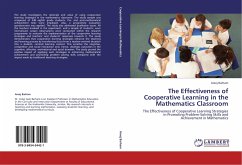Taban lo Liyong is best known in Africa both as a prolific literary artist and an iconoclast with boundless independence of thought. In spite of his prolific ness there has been a noticeable critical neglect of him. He is arguably, the most controversial and the most misunderstood among the founding practitioners of East Africa's literary practice. His works have baffled many critics mainly because of his eccentric ideas as well as his iconoclastic and subversive modes of expression. Odhoji identifies existentialism as the principal philosophical theory which influenced and shaped his subject matter and creative style. The purpose of this modest book is twofold. First, to apply existentialist philosophical theory to Taban's work in such a way as to glean the "eccentric" facets of his fiction which are relevant to today's critical thinking. Secondly, to demonstrate and justify that only existentialism can best expose and explain the "eccentric" facets of his works. The existentialist approach reflects Taban's prophetic relevance and calls for a re-evaluation of his status as one visionary writer who emerged onto the East African literary scene much earlier before his time
Bitte wählen Sie Ihr Anliegen aus.
Rechnungen
Retourenschein anfordern
Bestellstatus
Storno








